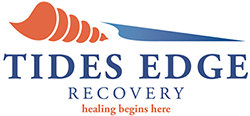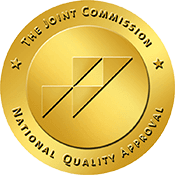Choosing between individual vs. group therapy can feel overwhelming, especially if you’re exploring options to start your recovery from addiction. Like many in the Jacksonville, FL area, you might be wondering which therapy approach is more suitable for your unique needs. At Tides Edge Detox Center, our detox center therapy services include both types of therapy, and each offers distinct benefits to support your healing and growth. Let’s consider the differences, benefits, and effectiveness of individual and group therapy. Ultimately, we strive to help you make an informed decision about your next steps in recovery.
What is individual therapy?
Individual therapy is a one-on-one treatment approach between a person in recovery and a licensed therapist. This therapy is highly personalized and allows the therapist to focus on your specific situations, challenges, and goals. Sessions typically involve exploring emotions, behaviors, and experiences that contribute to addiction, while also identifying strategies for healthier coping and decision-making.
Individual therapy often serves as a foundational part of addiction treatment, helping people uncover the root causes of substance use and develop tools to build a substance-free life. If you’ve been considering Jacksonville FL addiction treatment, you’ll likely encounter this method as part of a comprehensive care plan.
What are the types of individual therapy?
There are different types of individual therapy available, and the approach used will depend on your needs and preferences. These types of individual therapy are often integral to detox center therapy services, offering tools to create meaningful and lasting change:
Cognitive-behavioral therapy (CBT)
This evidence-based therapy helps you identify negative thought patterns and replace them with healthier behaviors. By understanding the connection between thoughts, feelings, and actions, CBT equips you with practical tools to manage stress and prevent relapse. It’s widely used to treat addiction and co-occurring mental health conditions.
Trauma therapy
Focused on addressing past traumatic experiences, this therapy helps you work through painful memories or emotions that may fuel your addiction. Therapists use various techniques, such as EMDR or exposure therapy, to safely process trauma and reduce its hold over your life. This can lead to greater emotional freedom and lasting recovery.
Motivational interviewing
Motivational interviewing encourages you to recognize and strengthen your motivation for change. Through empathetic and non-judgmental conversations, therapists help you explore your goals and resolve ambivalence about overcoming addiction. It’s a collaborative process aimed at empowering you to take meaningful steps forward.
Dialectical behavior therapy (DBT)
DBT teaches strategies for emotional regulation and coping with intense feelings. It emphasizes mindfulness, interpersonal effectiveness, and distress tolerance to help you navigate challenging situations without resorting to harmful behaviors. DBT is often used for people struggling with addiction and emotional instability.
Individual therapy advantages
There are key benefits to choosing individual therapy as part of your recovery:
- Customized care: Sessions are tailored to your goals, helping you address specific challenges in a safe, confidential space.
- Focused attention: You’ll have uninterrupted time with your therapist, allowing you to openly discuss sensitive topics.
- Deeper understanding: Individual therapy provides an opportunity to explore your emotions, triggers, and behaviors on a profound level.
- Flexible pace: You and your therapist can adjust the pace of treatment based on your comfort and progress.
For many, these advantages make individual therapy a highly effective tool in their recovery plan.
What is group therapy?
Group therapy involves a small group of people meeting with a therapist to share, discuss, and support one another throughout recovery. Unlike individual therapy, group sessions emphasize peer connection, allowing participants to learn from each other’s experiences while gaining a sense of camaraderie.
Group therapy often plays an important role in addiction recovery by creating a community of understanding. Many detox center therapy services include group therapy as a way to build relationships and provide mutual support during challenging times.
What are the types of group therapy?
Different types of group therapy can address various aspects of addiction recovery. Here are some common ones:
- Process groups: These groups center around open discussions where participants share experiences, feelings, and insights about recovery. They create a safe, non-judgmental space for participants to express themselves and learn from others’ journeys.
- Psychoeducation groups: These sessions provide information about addiction, triggers, and recovery strategies to help participants better understand their path forward. They strive to empower people with knowledge to make informed decisions and recognize patterns that may impact their recovery.
- Relapse prevention groups: Focused on long-term success, these groups teach coping techniques to prevent substance use in the future. Participants gain practical tools and strategies to handle high-risk situations and maintain sobriety.
- Support groups: Participants connect with peers who face similar challenges, offering encouragement and accountability. These groups foster a sense of community and shared understanding, reducing feelings of isolation during recovery.
The variety of types of group therapy means that you can find an approach that feels right for your recovery.
Group therapy advantages
Group therapy offers unique benefits that complement individual therapy in addiction treatment. Here’s why group sessions might appeal to you:
- Peer support: It fosters a sense of connection and understanding as you share similar experiences with others in recovery.
- Shared insight: Hearing different perspectives can spark new ideas and approaches to your own challenges.
- Skill-building: Group settings teach interpersonal skills, such as communication and conflict resolution, that are essential for strong relationships.
- Reduced isolation: Addiction often creates feelings of loneliness, and group therapy provides a supportive environment to counteract that.
These group therapy advantages make it a valuable part of Jacksonville FL addiction treatment plans.
Differences between individual therapy and group therapy
Now that you know more about both options, it’s important to understand the differences between individual therapy and group therapy. While both approaches aim to support recovery, they do this in distinct ways.
- Format: Individual therapy is a one-on-one experience, while group therapy involves multiple participants sharing a space.
- Focus: Individual therapy is personalized to your needs and pace, whereas group therapy emphasizes communal learning and support.
- Feedback: One-on-one therapists provide direct feedback, while group sessions often include insights from peers as well as the therapist.
- Environment: Individual therapy offers privacy, whereas group therapy allows for shared connection and camaraderie.
These differences highlight why the combination of individual and group therapy is often used in comprehensive addiction treatment programs.
How effective is group and individual therapy?
Both group and individual therapy are highly effective components of addiction recovery. Research shows that individual therapy helps people work through personal challenges, uncover root causes, and develop practical coping skills. Meanwhile, group therapy has been shown to reduce feelings of isolation, improve interpersonal skills, and foster long-term motivation for sobriety.
The effectiveness of individual vs. group therapy often depends on the person’s preferences and recovery goals. Tides Edge Detox offers both options so that clients can explore what works best for their unique paths.
Why go to Tides Edge?
When seeking Jacksonville FL addiction treatment, Tides Edge Detox Center stands out for its compassionate care and comprehensive services. Here’s why our clients trust us with their recovery:
- Customized treatment: We create programs designed to meet your unique needs, using both individual and group therapy to help you heal. Our personalized approach means that every aspect of your journey is tailored to your specific goals and circumstances.
- Expert therapists: Our licensed professionals guide you through evidence-based therapies like CBT, DBT, and trauma therapy. With their extensive experience, they provide compassionate care and the tools you need to build a healthier future.
- Holistic approach: Beyond therapy, we offer services that address physical, emotional, and mental well-being during detox. Holistic care means your body and mind are fully supported as you start your recovery journey.
- Collaborative care: Following detox, we provide options for continued treatment with our partner facility, Beaches Recovery, providing a seamless transition. This partnership allows us to extend the continuum of care, helping you maintain progress and long-term success.
If you’re ready to explore a treatment plan that includes individual vs. group therapy, Tides Edge Detox is here to guide you every step of the way.
Take the next step
Your recovery is personal, and the right therapy approach can make all the difference. Whether you opt for individual therapy, group therapy, or a combination of both, Tides Edge Detox Center offers the compassionate support you deserve. Call us today at 866.723.3127 or use our convenient online contact form.









